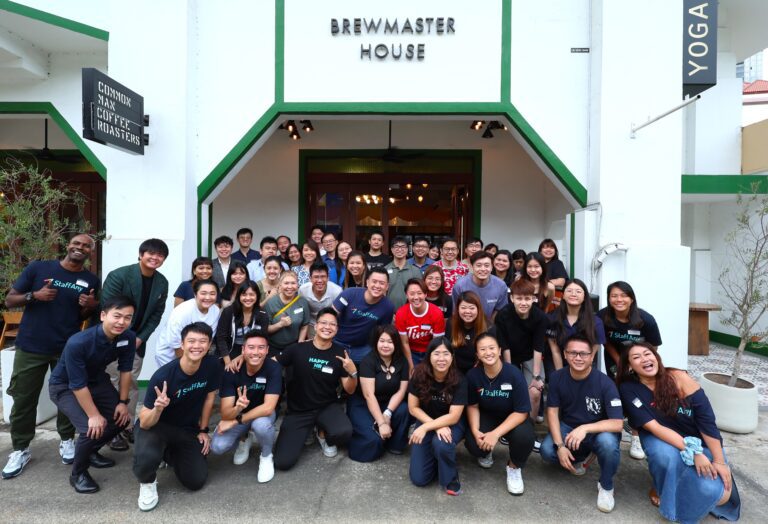Attendance is a fundamental aspect of any workplace, playing a crucial role in overall productivity, team dynamics, and organisational success. Whether you are an employee or an employer, understanding why attendance matters and implementing strategies to maintain it can significantly impact individual and collective achievements.
In this article, we will delve into the reasons why attendance matters at work and provide valuable tips to help improve and sustain employee attendance. Let’s find out below!
Why Attendance Matters at Work?
Attendance is not merely about physically being present at the workplace; it encompasses several vital aspects that contribute to a thriving work environment. Here are some compelling reasons why attendance holds such significance:
1. Enhanced Productivity
Regular attendance ensures a consistent workflow, enabling teams to meet deadlines and achieve targets efficiently. When employees are present, it facilitates seamless collaboration, reduces delays, and enhances overall productivity levels.
2. Reliable Team Dynamics
In any workplace, teamwork and collaboration are essential for success. When individuals consistently attend work, it fosters trust, strengthens relationships, and promotes effective communication among team members. This synergy facilitates better problem-solving, decision-making, and overall team performance.
3. Optimal Resource Allocation
Planning and allocating resources become much more manageable when employees attend work regularly. Employers can accurately gauge staffing requirements, distribute workloads effectively, and ensure the efficient utilisation of organisational resources, leading to improved operational efficiency.
4. Continuity in Customer Service
Attendance impacts customer satisfaction as well. Consistent presence allows for uninterrupted service, ensuring that customers receive the assistance they require promptly. This reliability helps build customer trust, loyalty, and ultimately contributes to business growth.
5. Workplace Morale and Culture
Attendance plays a vital role in shaping workplace morale and culture. When employees are consistently present, it creates a sense of commitment, dedication, and accountability. This positive atmosphere can significantly impact employee engagement, job satisfaction, and overall organisational culture.
Crucial Factors That Affect Attendance at Work
While attendance is crucial, several factors can influence employees’ ability to consistently show up at work. Recognizing and addressing these factors is key to maintaining optimal attendance levels. Let’s explore some of the most significant factors:
1. Health Issues
Illnesses, both chronic and acute, can hinder attendance. Employers can support employees by offering comprehensive healthcare benefits, promoting a healthy work-life balance, and providing opportunities for preventive care.
2. Work-Life Balance
Striking a balance between work and personal life is essential for employee well-being. Organisations that prioritise work-life balance through flexible schedules, family-friendly policies, and supportive leave policies often witness higher attendance rates.
3. Commute Challenges
Lengthy commutes or inadequate transportation options can make it difficult for employees to arrive on time consistently. Employers can explore alternatives such as remote work options, carpooling initiatives, or incentives for using public transportation to mitigate commuting challenges.
4. Job Satisfaction and Engagement
Employee satisfaction and engagement levels directly impact attendance. Organisations should focus on creating a positive work environment, recognizing and rewarding employee contributions, and providing opportunities for growth and development.
5. Workload and Stress
Excessive workload and high levels of stress can lead to absenteeism. Employers should assess workloads, ensure realistic expectations, and provide adequate support to help employees manage their responsibilities effectively.
Ways to Improve Employee Attendance and Punctuality
Improving workplace attendance requires a proactive approach from both employees and employers. Here are some effective strategies to enhance and maintain good attendance:
1. Clear Attendance Policies
Organisations should establish and communicate clear attendance policies to all employees. These policies should outline expectations, procedures for requesting time off, and consequences for excessive absences. To ensure that, human resource department should provide a copy of the attendance policy to every employee or just include it in the employee handbook.
2. Flexible Work Options
Offering flexible work arrangements, such as remote work or flexible schedules, can significantly boost attendance. These options provide employees with the flexibility to manage personal obligations while still fulfilling work commitments.
3. Employee Recognition and Incentives
Recognizing and rewarding employees for their consistent attendance can motivate individuals to prioritise attendance. Incentives, such as bonuses, additional vacation days, or public recognition, can serve as powerful motivators.
4. Wellness Programs
Implementing wellness programs and initiatives can support employees’ physical and mental well-being, reducing the likelihood of absenteeism due to health-related issues. These programs can include fitness classes, mental health resources, and access to healthy snacks or meals.
5. Training and Development Opportunities
Investing in employees’ professional growth and development not only enhances their skills but also fosters a sense of loyalty and employee morale. By offering training programs and career advancement opportunities, organisations can promote attendance and retention.
6. Effective Communication
Establishing open lines of communication between employees and management is crucial. Regular check-ins, team meetings, and feedback sessions can help identify and address any attendance concerns promptly, allowing for proactive solutions.
7. Work-Life Balance Support
Encouraging work-life balance through policies such as flexible schedules, parental leave, and paid time off can contribute to better attendance. Employees who feel supported in managing their personal obligations are more likely to maintain consistent attendance.
8. Employee Assistance Programs
Providing access to employee assistance programs can offer support for personal and work-related challenges, reducing absenteeism caused by stress or other issues. These programs can offer counselling, financial guidance, and other resources to support employee well-being.
9. Flexible Leave Policies
Implement flexible leave policies that include sick leave, personal days, and vacation time. This allows employees to take time off when necessary, reducing the likelihood of unscheduled absenteeism.
10. Regular Check-Ins
Schedule regular one-on-one meetings with employees to discuss their work, address concerns, and offer support. This can create a sense of accountability and motivation to attend work consistently. But when an employee has consistently poor attendance, it suggests that they’re not prepared to pull their weight in the company.
11. Tracking Attendance
Tracking your employee attendance at work is vital for maintaining accurate records of employee presence and absence. It ensures payroll accuracy, helps comply with labor regulations, and aids in efficient resource allocation. By identifying attendance trends, businesses can address issues promptly, fostering a productive and accountable work environment.
Read more: 10 Tips for Managing Employee Absence
Attendance matters greatly in the workplace due to its impact on productivity, team dynamics, customer satisfaction, and organisational culture. By recognizing the factors that affect attendance and implementing strategies to improve it, both employees and employers can create an environment conducive to consistent attendance.
Looking for an efficient solution to manage employee schedules and boost attendance? Look no further! Streamline your scheduling process with StaffAny’s employee schedule maker. StaffAny offers a comprehensive employee scheduling system that simplifies the entire process, making it easier than ever to maintain optimal attendance.
With StaffAny’s user-friendly interface, you can create, update, and manage employee schedules with just a few clicks. Say goodbye to manual spreadsheets and time-consuming scheduling tasks. StaffAny’s advanced features allow you to customise shifts, handle shift swaps and time-off requests effortlessly, ensuring smooth operations and reducing absenteeism.
Ready to take your employee scheduling to the next level? Contact us now!







